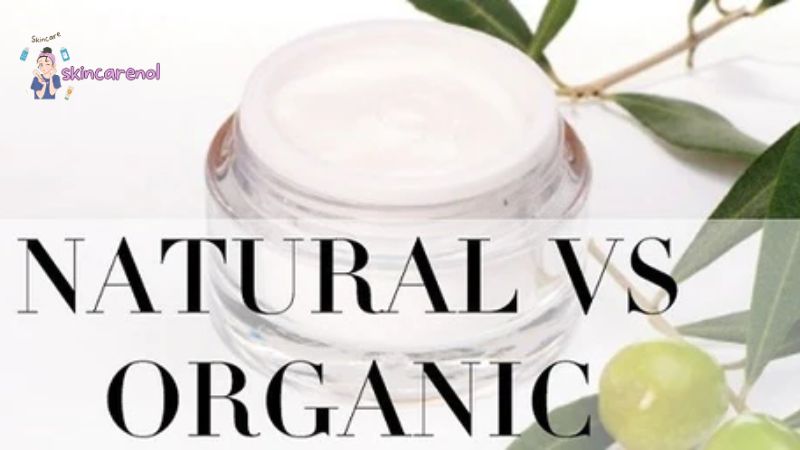Generate Your About Us Content
Skincare enthusiasts often turn to various methods to preserve the efficacy and longevity of their beloved products. One such method is refrigeration, which can be beneficial for certain formulations. However, it’s essential to recognize that not all skincare products are suitable for chilling. Understanding what skincare products should not be refrigerated is crucial to avoid potential alterations in texture, efficacy, or even irritation. In this comprehensive guide, Skincareno1 will explore the types of skincare products that are best left at room temperature.
What Skincare Products Should Not Be Refrigerated?
Oil-Based Products:
Among the plethora of skincare products available, oil-based formulations occupy a significant place. Facial oils, oil-based serums, and oil cleansers are popular choices for hydration and nourishment. However, these products should not be refrigerated. Cold temperatures can have adverse effects on oil-based formulations, causing them to solidify or become cloudy. Alterations in texture not only compromise the user experience but may also affect the efficacy of the product. Thus, it’s advisable to store oil-based skincare products in a cool, dry place away from direct sunlight.

Creams and Lotions:
Water-based creams, lotions, and moisturizers are staples in many skincare routines, providing hydration and moisture to the skin. These formulations are typically designed to remain stable at room temperature. Refrigerating creams and lotions can alter their consistency, making them less pleasant to apply. Furthermore, the cold environment may not be conducive to preserving the integrity of water-based ingredients. To maintain the efficacy and texture of creams and lotions, it’s best to store them in a cool, dry place.
Clay Masks:
Clay masks are celebrated for their exceptional detoxifying and purifying properties, rendering them a favored option among skincare aficionados seeking a deep cleanse. Yet, refrigerating clay masks is generally discouraged due to potential drawbacks. Cold temperatures can cause the mask to harden, impeding its application and even distribution on the skin. Moreover, moisture from the refrigerator might compromise the mask’s consistency, resulting in clumping or texture changes. To preserve the efficacy and usability of clay masks, it’s advisable to store them in a cool, dry environment devoid of humidity, ensuring they remain in prime condition for consistent and effective skincare application.
Powdered Products:
Exfoliants, masks, and other skincare products often come in powdered form, offering versatility and customization options for users. However, powdered products should not be refrigerated. Cold temperatures can introduce moisture to the powder, causing it to clump or alter its consistency. This not only diminishes the user experience but may also affect the efficacy of the product. To maintain the integrity of powdered skincare products, store them in a cool, dry place and ensure the container is tightly sealed.

Certain Vitamin C Formulations:
Vitamin C serums are prized for their antioxidant properties and ability to brighten the complexion. While some Vitamin C formulations benefit from refrigeration to prolong their shelf life, others may be destabilized by cold temperatures. It’s essential to check the specific instructions from the manufacturer regarding storage recommendations. Certain Vitamin C formulations may contain ingredients that are sensitive to temperature fluctuations, and refrigeration could compromise their efficacy. To ensure the potency of Vitamin C serums, follow the manufacturer’s guidelines for storage.
Natural or Organic Products:
Skincare products containing natural or organic ingredients are favored by many individuals seeking clean and green beauty options. However, these products may not fare well in the refrigerator. Cold temperatures can cause separation or changes in texture, particularly in formulations with a high concentration of botanical extracts or oils. To preserve the integrity of natural or organic skincare products, store them in a cool, dry place away from direct sunlight. Additionally, ensure the product is tightly sealed to prevent exposure to air and moisture.

Sensitive Skin Products:
Individuals with sensitive skin require extra care when selecting and storing skincare products. Refrigerating certain products may alter their pH or consistency, potentially causing irritation upon application. It’s essential to be mindful of the specific needs of sensitive skin and to choose products that are formulated to be gentle and non-irritating. If in doubt, consult with a dermatologist or skincare professional for personalized recommendations. Opting for products designed for sensitive skin and storing them in a stable environment can help maintain skin health and minimize the risk of adverse reactions.
Conclusion:
In the quest for radiant and healthy skin, proper storage of skincare products plays a vital role. While refrigeration can be beneficial for certain formulations, it’s crucial to understand what skincare products should not be refrigerated. Oil-based products, creams, lotions, clay masks, powdered products, certain Vitamin C formulations, natural or organic products, and sensitive skin products are best kept at room temperature to preserve their efficacy and texture. By following these guidelines, skincare enthusiasts can ensure that their products deliver optimal results while maintaining their integrity. Remember, a little care in storage goes a long way in maintaining healthy and beautiful skin.


